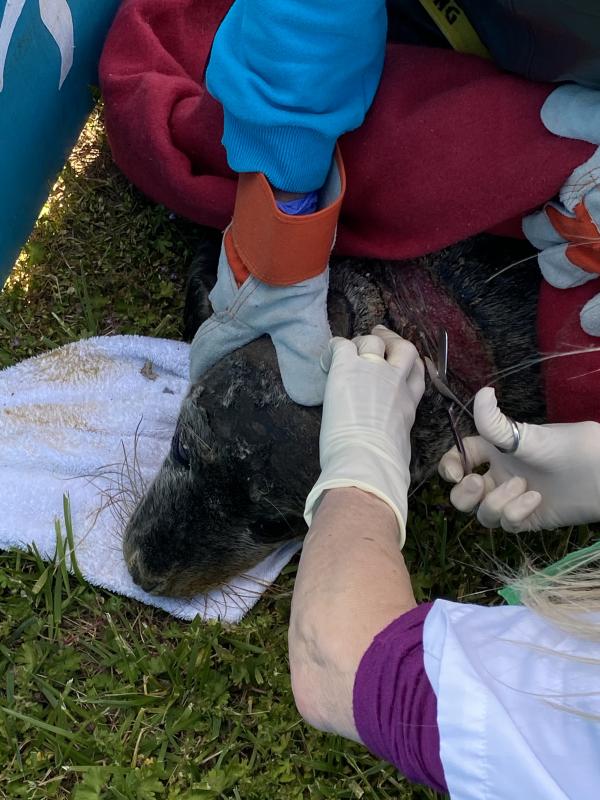Rescuers from the Marine Education, Research and Rehabilitation Institute responded May 12 to a report of a gray seal pup on the bay side of the Point at Cape Henlopen State Park. The seal was entangled in gill netting, which was wrapped tightly around its neck.
Although he could still breathe, the netting was cutting deeply into his flesh, causing a 4-inch-wide wound. Responders believe this was the same entangled seal that had been reported May 10, but swam away before it could be rescued.
The seal had hauled itself out of the water within the plover-nesting area at Cape Henlopen, and it was very fortunate that the plover biologists discovered him and reported him to MERR. A small group of MERR’s stranding responders was escorted into the sensitive area on foot by the plover biologists from the Department of Natural Resources and Environmental Control, helping keep the seal and the plovers safe.
This young seal, named Haven by the staff at Haven Lake Animal Hospital where MERR’s veterinarian practices, weighs 45-50 lbs. and is believed to be about 2 1/2 months old. If he had not been rescued and disentangled, the net would have become increasingly tighter around his neck as he grew, causing infection, slow starvation, and probable strangulation.
The seal showed immediate signs of improvement after the netting was removed. The wound was cleaned, and he received life-saving fluids and antibiotics. Haven was transported May 13 to the Marine Mammal Stranding Center in Brigantine, N.J., for rehabilitation.
Special thanks go out to MERR volunteers, the plover biologists, MERR’s veterinarian Dr. Dee Holm and the staff at Haven Lake Animal Hospital in Milford.
Anyone who views a stranded seal, marine mammal or sea turtle on local beaches is urged to call MERR’s 24-hour response line, 302-228-5029, to report the sighting. Always keep a mandatory distance of 150 feet from the animal so as not to disturb it, and keep pets on a leash and at a safe distance.




















































